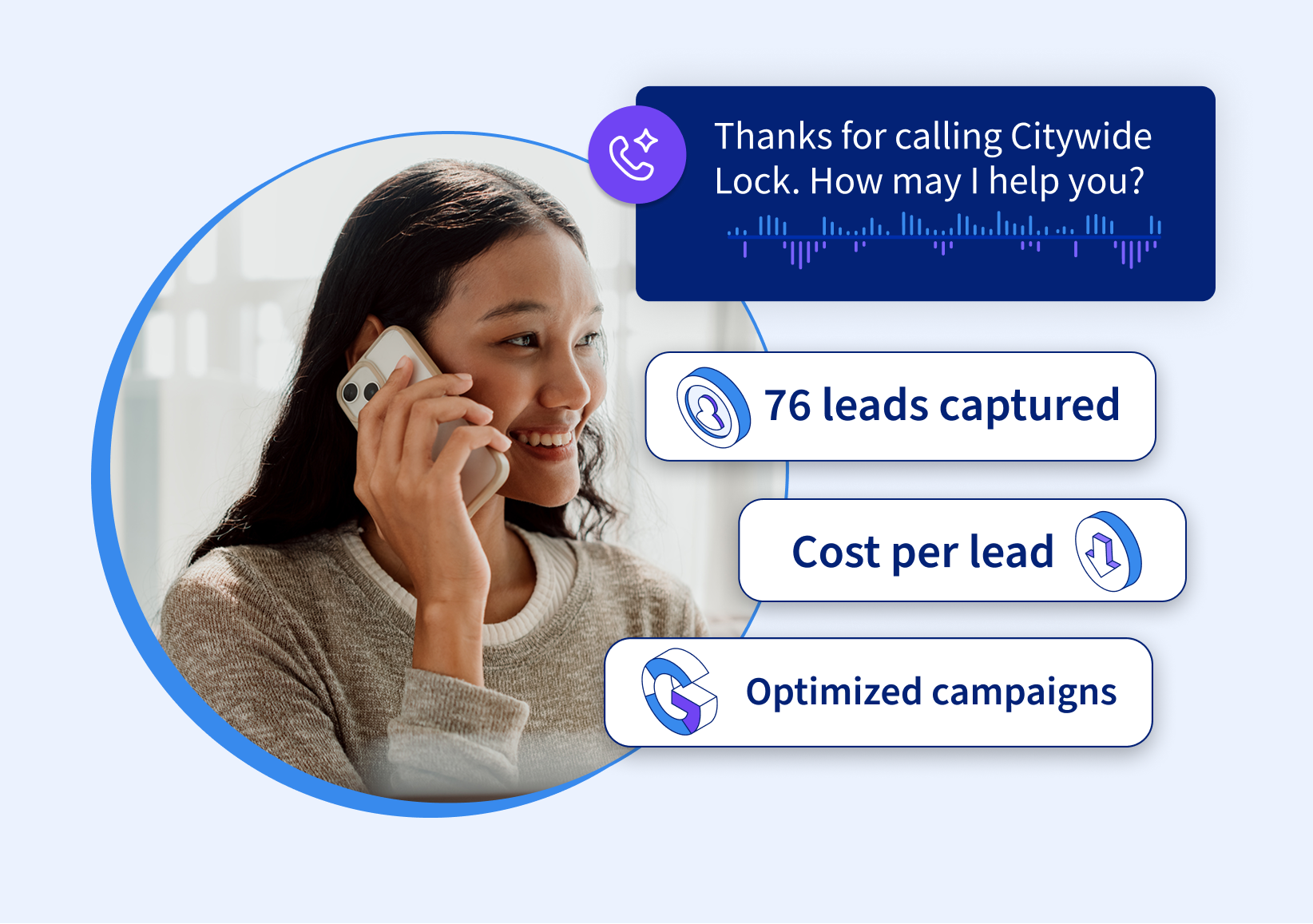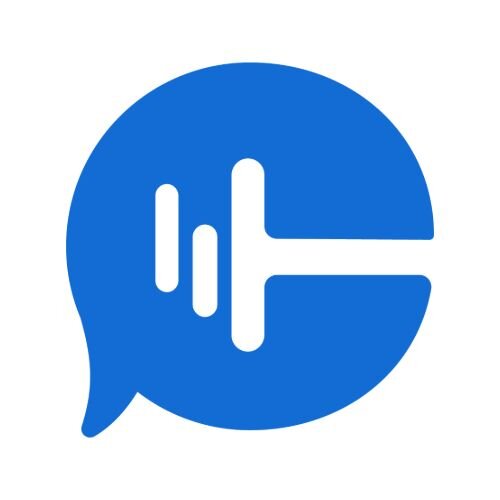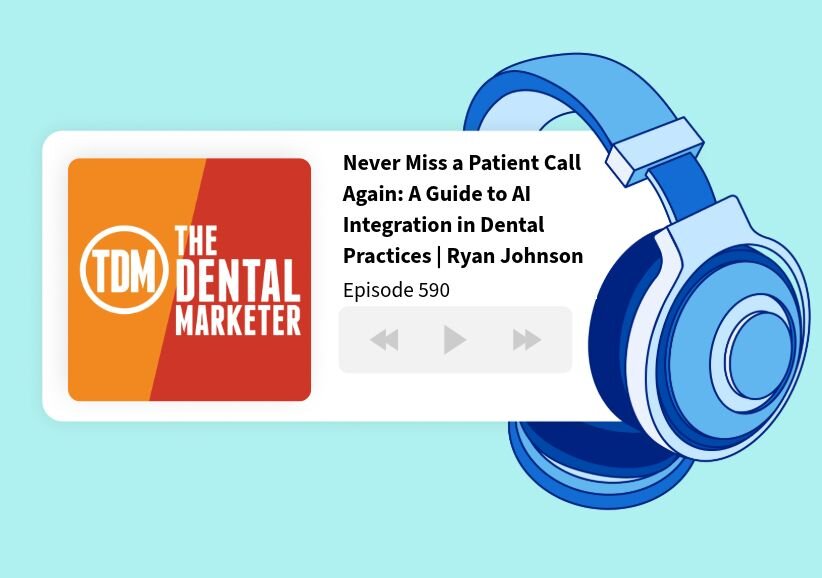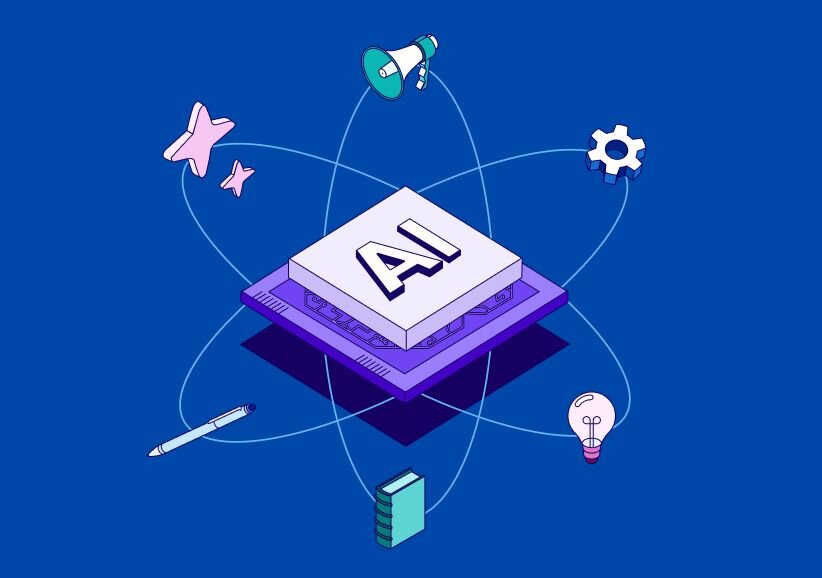Choosing the right AI phone answering software can make the difference between missed opportunities and stronger customer connections. The best AI phone answering software helps businesses answer calls 24/7, route conversations to the right place, book appointments, and capture every lead without extra effort. It acts like a reliable team member that never takes a break, giving companies more time to focus on growth.
Modern platforms go beyond simple voicemail or clunky phone menus. They use natural conversation to understand intent, respond to questions, and integrate with tools like calendars and CRMs. This means every call is logged, every detail is stored, and every customer feels valued.
With options like CallRail, JustCall, Retell AI, Synthflow, and Smith.ai, businesses can compare features that fit their needs - from call tracking and analytics to scheduling and lead qualification. Each solution offers a different way to streamline communication, and knowing how they stack up makes it easier to choose the right fit.
CallRail
We give you tools to track, capture, and qualify phone leads with less manual effort. You can use Voice Assist to handle calls 24/7, improve lead tracking, and reduce missed opportunities while keeping your team focused on higher-value work.
Features & benefits
With Voice Assist, you can answer calls at any time without relying on staff availability. The AI agent engages callers in natural conversations, gathers intake details, and can schedule appointments. This helps you avoid losing leads during off-hours, reducing your cost per lead.
The platform also tracks call data and integrates with your marketing tools. You can see which campaigns drive calls, understand caller intent, and automatically score lead quality. By combining call tracking with an AI voice agent, you gain better visibility into your marketing performance.
With easy setup and expert support, Voice Assist is trained using your website and past call transcripts. You stay in control: set it to answer calls after hours, during overflow, or around the clock, whatever fits your workflow. However you choose to use it, Voice Assist turns missed calls into captured leads and revenue, without adding to your headcount.
Voice Assist doesn’t just pick up the phone - it collects the details that matter, right during the intake conversation. You can customize exactly what it asks based on your goals, from basic contact info to service needs, appointment preferences and other qualifying details. Voice Assist uses this information to automatically score and prioritize each lead, so your team knows exactly who to follow up with first.
This provides insights into customer needs and helps your team adjust messaging. Automating routine calls saves time while ensuring consistent communication with every caller.
Plus, you control when and why calls get transferred. Set rules to transfer calls based on what’s happening in the conversation, like when a caller asks to speak to someone or meets certain lead criteria. You can even customize who qualifies to reach your team during off-hours, so only the right calls get through at the right time.
You can keep the conversation going via text. After a caller hangs up, Voice Assist can follow up with a text message to share next steps, or simply stay top of mind so the customer keeps moving forward.
For businesses that want to explore its capabilities further, the AI voice assistant buyer’s guide provides details on how these tools work in practice.
Here’s how businesses are putting Voice Assist to work.
Legal: A personal injury law firm receives a high volume of inquiries but only wants to focus on serious cases relevant to their practice. Voice Assist can collect intake details like case type, incident date, and injury severity, then score each lead so your team can prioritize high-value cases and filter out irrelevant inquiries.
Home Services: An HVAC company relies on Voice Assist to answer emergency calls after hours. It gathers job details and urgency in real time, so the team can quickly follow up and be first to respond, boosting their chance of winning the job and protecting their LSA rankings from missed calls. To take this further, you can also transfer the most urgent issues to a human.
Healthcare: A dental office uses Voice Assist to cover the phones when the front desk is busy with patients. It answers questions, collects scheduling preferences, and makes sure new patient opportunities aren’t lost to voicemail.
Agency: A marketing agency running PPC campaigns uses Voice Assist to make sure every lead is answered, even outside business hours. It handles intake, scores the lead, and connects the call data directly to ad platforms, reducing manual review and improving campaign attribution.
Small business: A small business owner receives calls throughout the day, but can’t always step away from customers or daily operations to answer. Voice Assist steps in like a well-trained team member - capturing contact info, answering common questions, and collecting key details about the caller’s needs. Each lead is scored and flagged for follow-up, so the owner can stay focused on growing their business.
Audience
CallRail is designed for small to mid-sized businesses and marketing agencies that depend on phone calls for leads. Service providers such as law firms, healthcare offices, and home services often use it to measure which campaigns generate valuable calls.
Agencies benefit from clear attribution reports that connect calls, forms, and chats to specific campaigns. This makes it easier to show clients which channels deliver the most return on investment.
Agencies work hard to generate leads for their clients, but sometimes those valuable phone calls get missed, which at the end of the day hurts their metrics and potentially hurts their relationship with the client.
Sales teams also use conversation insights to train staff and improve call handling. By capturing every lead through Voice Assist, businesses avoid losing potential customers after hours or during busy times.
Pricing
CallRail offers Voice Assist as an add-on to its platform. The plan costs $95 per month, which includes 50 calls. After that, you pay $1 per call. Only Voice Assist answered calls over 15 seconds will count towards your usage.
This pricing model works well if you want predictable costs with flexibility to scale. You can start small and adjust based on call volume. It’s yours for 14 days, no charge.
More details on cost and value are outlined in the overview on capturing every lead, which explains how the tool helps convert calls into revenue.

We’ve increased our answer rate by 175% with Voice Assist
Roberto Schimmenti
Founder, Cash 4 Keys
JustCall
JustCall offers a cloud-based communication platform that combines phone, SMS, and email with built-in AI voice agents. It is designed to capture leads, manage customer calls, and reduce missed opportunities while connecting directly with popular CRM and workflow tools.
Features & benefits
The AI Voice Agent handles routine tasks such as booking appointments, qualifying leads, and answering FAQs. It can also send post-call texts, route calls based on rules, and provide fallback handling when live agents are unavailable.
Users can customize tone, language, and voice style to match their brand. The system supports over 300 knowledge base connections, which allows it to give consistent and accurate responses.
Integration is a strong point. JustCall connects with Salesforce, HubSpot, Zoho, Zoom, and Google Meet. It also supports API connections for call tracking and reporting.
By combining AI with its VoIP-first platform, JustCall positions itself as more than a standalone answering tool. Instead, it serves as a unified hub for communication across multiple channels.
Audience
JustCall fits businesses that need to handle high call volumes or manage multiple client accounts. Agencies, franchises, and mid-sized to large companies often benefit most because of its ability to centralize calls across locations.
It is also useful for service providers with after-hours demands, such as healthcare, legal, or home services. The AI agent ensures no call is missed and urgent inquiries are routed properly.
Smaller businesses can use it, but the setup and cost structure make it more attractive for teams that already rely on CRM integrations and structured workflows.
For companies that want AI to complement human agents rather than replace them, JustCall’s hybrid model provides flexibility. Routine calls go to AI, while complex ones can be escalated to staff.
Pricing
Pricing combines two layers: a base subscription and AI usage fees. The core subscription starts at $29 per user per month. To activate the AI Voice Agent, businesses choose an add-on plan.
For businesses with unpredictable usage, a pay-as-you-go model charges $0.99 per minute. Discounts apply at higher volumes, dropping rates closer to $0.50 per minute for heavy use.
An annual minimum of $150 ensures access, which covers about 200 minutes. This tiered approach helps companies manage costs while scaling AI call handling alongside their team.
Retell AI
Retell AI focuses on enterprise-grade phone answering with a developer-first approach. It emphasizes speed, transcription accuracy, and seamless integration into existing systems, making it a strong choice for organizations with high call volumes and technical resources.
Features & benefits
Retell AI combines advanced speech recognition with a proprietary turn-taking model that reduces interruptions and improves the flow of live conversations. This design helps callers experience more natural interactions without delays or cutoffs.
The platform supports real-time CRM lookups, appointment scheduling, and outbound call triggers through its API. Businesses can sync customer data instantly and deliver personalized responses during calls.
It also offers layered fallback mechanisms. Calls can transfer smoothly to a human agent, with the AI passing along full context so the customer does not need to repeat information.
Monitoring tools track call sentiment, task completion, and latency. These insights help teams measure performance and adjust workflows. Retell AI’s ability to handle millions of calls per month highlights its scalability for large organizations.
Audience
The platform is designed for mid-market and enterprise clients that manage large volumes of customer calls. Its structure suits companies that already have technical teams capable of working with APIs and webhooks.
Retell AI’s unbundled pricing and developer-friendly setup make it less ideal for small businesses without in-house technical resources. Instead, it appeals to enterprises that want granular control over integrations and performance.
Industries such as healthcare, retail, and professional services benefit from its ability to automate scheduling, support, and data-driven workflows. Because it integrates directly with CRMs and business phone systems, it fits into existing processes without requiring major operational changes.
By focusing on technical performance - like low latency and accurate transcription - Retell AI aligns with organizations that prioritize reliability over simplicity. This makes it a strong option for businesses that want customizable, high-scale automation.
Pricing
Retell AI uses a usage-based model where costs depend on active call minutes. Pricing combines three main components:
Voice processing: $0.07 per minute
LLM usage: ranges from $0.006 to $0.05 per minute, depending on the model chosen by the customer
Telephony costs: about $0.015 per minute using providers such as Twilio
The first 10 knowledge bases are free, with additional ones costing $8 each. Pilot packages run between $5,000 and $15,000, making it clear the platform targets larger organizations.
Because costs are unbundled, total spend depends on call volume, model choice, and telephony usage. This structure offers flexibility but requires careful budget management, especially for enterprises handling millions of minutes each month.
Synthflow
Synthflow is designed as an enterprise-level, voice-first platform that automates inbound and outbound calls with natural-sounding AI agents. It focuses on lead capture, scheduling, and customer support while giving businesses full control over prompts, workflows, and integrations.
Features & benefits
Synthflow provides AI voice agents that can answer calls, qualify leads, and book or reschedule appointments in real time. The agents support custom prompts, letting businesses define tone, greetings, and response behavior.
The system handles interruptions smoothly, confirms caller details when needed, and routes calls to human staff if escalation is required. It can also trigger custom API actions such as updating a CRM, checking inventory, or sending a webhook.
Integrations include HubSpot, Salesforce, and GoHighLevel, along with support for custom workflows. Built-in reporting tracks call success rates, appointment bookings, and drop-offs. For deeper insights, businesses can push data through APIs to measure cost per lead or conversion performance.
Because the platform is fully prompt-based, it doesn’t require training data or retraining cycles. This allows quick setup and ongoing adjustments without technical overhead. It also supports unlimited concurrent calls, making it scalable for high call volumes.
Audience
Synthflow is best suited for agencies and businesses that manage many clients or handle a large number of calls. Marketing and lead generation agencies benefit from its ability to deploy multiple AI assistants without extra licensing fees.
Small and mid-sized businesses use it for after-hours answering, appointment scheduling, and basic support. Larger organizations rely on it for lead qualification at scale, where consistent follow-up and 24/7 availability are critical.
Consultants and service providers also find value in automating call handling to reduce missed leads. Since the system integrates with popular CRMs and scheduling tools, it fits well into existing sales and support workflows.
The platform does not store memory between calls unless a profile is passed through an API, which makes it better suited for transactional interactions rather than long-term relationship management.
Pricing
Synthflow uses a minutes-based pricing model with no per-agent or per-seat fees. Every plan includes the AI features, and customers can create unlimited assistants without added cost.
Annual billing reduces the Agency plan to $1,250/month. The Enterprise plan offers the lowest per-minute rates for high-volume users.
To activate service, businesses need a paid subscription and a phone number or call forwarding setup. No separate AI license or training data is required, as the system runs on a built-in GPT-5 model at the time of writing this article.
Plan
Monthly cost
Minutes included
Overage rate
Starter
$29
50
$0.12/min
Agency
$1400
6000
$0.10/min
Enterprise
$2400+
20,000
$0.08–$0.12
Smith.ai
Smith.ai offers a blend of AI automation and live support that helps businesses manage calls without sacrificing service quality. It focuses on delivering speed, consistency, and flexibility while still providing a human option for complex or sensitive conversations.
Features & benefits
Smith.ai combines AI answering with human backup to ensure calls are handled smoothly. The AI takes care of routine tasks such as lead intake, FAQ responses, appointment scheduling, and call routing. When a situation requires judgment or empathy, the system escalates to a live agent without interruption.
A standout feature is its ability to process payments by phone, something most AI-only services cannot handle. This makes it useful for businesses that need to collect deposits or fees during intake.
The platform also supports outbound campaigns, allowing businesses to follow up with leads or run sales outreach using a mix of AI and human callers.
Every interaction is logged in a dashboard that includes transcripts, call recordings, and AI-generated summaries. The dashboard also shows call history with details such as caller type and priority, giving teams better visibility into customer activity.
Smith.ai can scale to handle thousands of calls at once, making it reliable during peak times. Setup is straightforward, with options to configure the system on your own or with a short onboarding session.
Audience
The service is designed for small and medium businesses that receive steady inbound call volume. These companies often need a professional solution that balances cost efficiency with caller experience.
It works well for firms that cannot afford to miss calls but also want to avoid the expense of a full-time receptionist. Law firms, home service providers, and professional practices are common users.
Businesses that value customer service quality over simple cost cutting are the best fit. The hybrid model appeals to owners who like AI efficiency but worry about losing the human touch in customer conversations.
Because the AI is custom-built around each client’s services, FAQs, and workflows, it adapts well to different industries. This customization ensures callers get accurate answers that reflect the company’s brand and processes.
Pricing
Smith.ai uses a per-call billing model instead of charging by the minute or by seat. This makes costs more predictable for businesses that want to track value by call volume.
The AI-first receptionist plan starts at $97.50 per month for 30 calls. Extra calls are billed at $4.25 each. These plans include human backup at no extra charge, which sets them apart from most AI-only competitors.
For companies that want a fully human-powered service, pricing begins at $292.50 per month. This option provides live receptionists for every call but comes at a higher cost.
The tiered structure gives businesses flexibility to choose between AI-led efficiency and full human coverage, depending on their call needs and budget. This makes Smith.ai adaptable to different growth stages and service requirements.











